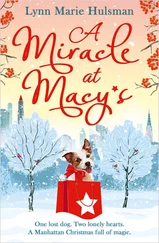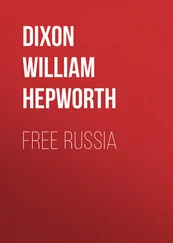Nikolai Nekrasov - Who Can Be Happy and Free in Russia?
Здесь есть возможность читать онлайн «Nikolai Nekrasov - Who Can Be Happy and Free in Russia?» весь текст электронной книги совершенно бесплатно (целиком полную версию без сокращений). В некоторых случаях можно слушать аудио, скачать через торрент в формате fb2 и присутствует краткое содержание. Год выпуска: 2005, Жанр: Поэзия, на английском языке. Описание произведения, (предисловие) а так же отзывы посетителей доступны на портале библиотеки ЛибКат.
- Название:Who Can Be Happy and Free in Russia?
- Автор:
- Жанр:
- Год:2005
- ISBN:нет данных
- Рейтинг книги:3 / 5. Голосов: 1
-
Избранное:Добавить в избранное
- Отзывы:
-
Ваша оценка:
- 60
- 1
- 2
- 3
- 4
- 5
Who Can Be Happy and Free in Russia?: краткое содержание, описание и аннотация
Предлагаем к чтению аннотацию, описание, краткое содержание или предисловие (зависит от того, что написал сам автор книги «Who Can Be Happy and Free in Russia?»). Если вы не нашли необходимую информацию о книге — напишите в комментариях, мы постараемся отыскать её.
Who Can Be Happy and Free in Russia? — читать онлайн бесплатно полную книгу (весь текст) целиком
Ниже представлен текст книги, разбитый по страницам. Система сохранения места последней прочитанной страницы, позволяет с удобством читать онлайн бесплатно книгу «Who Can Be Happy and Free in Russia?», без необходимости каждый раз заново искать на чём Вы остановились. Поставьте закладку, и сможете в любой момент перейти на страницу, на которой закончили чтение.
Интервал:
Закладка:
The guards and officials
Have made it their refuge;
But all the poor peasants
Are strewn by the river 310
Like soldiers in camp.
Though they're mostly asleep now,
A few are astir,
And two under-officials
Are picking their way
To the tent for some vodka
'Mid tables and cupboards
And waggons and bundles.
A tailor approaches
The vodka tent also; 320
A shrivelled old fellow.
His irons and his scissors
He holds in his hands,
Like a leaf he is shaking.
The pope has arisen
From sleep, full of prayers.
He is combing his hair;
Like a girl he is holding
His long shining plait.
Down the Volga comes floating 330
Some wood-laden rafts,
And three ponderous barges
Are anchored beneath
The right bank of the river.
The barge-tower yesterday
Evening had dragged them
With songs to their places,
And there he is standing,
The poor harassed man!
He is looking quite gay though, 340
As if on a holiday,
Has a clean shirt on;
Some farthings are jingling
Aloud in his pocket.
Young Grísha observes him
For long from the river,
And, half to himself,
Half aloud, begins singing:
With shoulders back and breast astrain,
And bathed in sweat which falls like rain,
Through midday heat with gasping song,
He drags the heavy barge along. 352
He falls and rises with a groan,
His song becomes a husky moan….
But now the barge at anchor lies,
A giant's sleep has sealed his eyes;
And in the bath at break of day
He drives the clinging sweat away.
Then leisurely along the quay
He strolls refreshed, and roubles three 360
Are sewn into his girdle wide;
Some coppers jingle at his side.
He thinks awhile, and then he goes
Towards the tavern. There he throws
Some hard-earned farthings on the seat;
He drinks, and revels in the treat,
The sense of perfect ease and rest.
Soon with the cross he signs his breast:
The journey home begins to-day.
And cheerfully he goes away; 370
On presents spends a coin or so:
For wife some scarlet calico,
A scarf for sister, tinsel toys
For eager little girls and boys.
God guide him home—'tis many a mile—
And let him rest a little while….
The barge-tower's fate
Lead the thoughts of young Grisha
To dwell on the whole
Of mysterious Russia— 380
The fate of her people.
For long he was roving
About on the bank,
Feeling hot and excited,
His brain overflowing
With new and new verses.
"The Tsar was in mood
To dabble in blood:
To wage a great war.
Shall we have gold enough? 390
Shall we have strength enough?
Questioned the Tsar.
"(Thou art so pitiful,
Poor, and so sorrowful,
Yet thou art powerful,
Thy wealth is plentiful,
Russia, my Mother!)
"By misery chastened,
By serfdom of old,
The heart of thy people, 400
O Tsar, is of gold.
"And strong were the nation,
Unyielding its might,
If standing for conscience,
For justice and right.
"But summon the country
To valueless strife,
And no man will hasten
To offer his life.
"So Russia lies sleeping 410
In obstinate rest;—
But should the spark kindle
That's hid in her breast—
"She'll rise without summons,
Go forth without call,
With sacrifice boundless,
Each giving his all!
"A host she will gather
Of strength unsurpassed,
With infinite courage 420
Will fight to the last.
"(Thou art so pitiful,
Poor, and so sorrowful,
Yet of great treasure full,
Mighty, all-powerful,
Russia, my Mother!)"
Young Grísha was pleased
With his song; and he murmured.
"Its message is true;
I will sing it to-morrow 430
Aloud to the peasants.
Their songs are so mournful,
It's well they should hear
Something joyful,—God help them!
For just as with running
The cheeks begin burning,
So acts a good song
On the spirit despairing,
Brings comfort and strength."
But first to his brother 440
He sang the new song,
And his brother said, "Splendid!"
Then Grísha tried vainly
To sleep; but half dreaming
New songs he composed.
They grew brighter and stronger….
Our peasants would soon
Have been home from their travels
If they could have known
What was happening to Grísha: 450
With what exaltation
His bosom was burning;
What beautiful strains
In his ears began chiming;
How blissfully sang he
The wonderful anthem
Which tells of the freedom
And peace of the people.
Footnotes
1
Many years later, after his mother's death, Nekrassov found this letter among her papers. It was a letter written to her by her own mother after her flight and subsequent marriage. It announced to her her father's curse, and was filled with sad and bitter reproaches: "To whom have you entrusted your fate? For what country have you abandoned Poland, your Motherland? You, whose hand was sought, a priceless gift, by princes, have chosen a savage, ignorant, uncultured…. Forgive me, but my heart is bleeding…."
2
Priest.
3
Landowner.
4
The peasants assert that the cuckoo chokes himself with young ears of corn.
5
A kind of home-brewed cider.
6
Laput is peasants' footgear made of bark of saplings.
7
Priest
8
New huts are built only when the village has been destroyed by fire.
9
The lines of asterisks throughout the poem represent passages that were censored in the original.
10
There is a superstition among the Russian peasants that it is an ill omen to meet the "pope" when going upon an errand.
11
Landowners
12
Dissenters in Russia are subjected to numerous religious restrictions. Therefore they are obliged to bribe the local orthodox pope, in order that he should not denounce them to the police.
13
There is a Russian superstition that a round rainbow is sent as a sign of coming dry weather.
14
Kasha and stchee are two national dishes.
15
The mud and water from the high lands on both sides descend and collect in the villages so situated, which are often nearly transformed into swamps during the rainy season.
Читать дальшеИнтервал:
Закладка:
Похожие книги на «Who Can Be Happy and Free in Russia?»
Представляем Вашему вниманию похожие книги на «Who Can Be Happy and Free in Russia?» списком для выбора. Мы отобрали схожую по названию и смыслу литературу в надежде предоставить читателям больше вариантов отыскать новые, интересные, ещё непрочитанные произведения.
Обсуждение, отзывы о книге «Who Can Be Happy and Free in Russia?» и просто собственные мнения читателей. Оставьте ваши комментарии, напишите, что Вы думаете о произведении, его смысле или главных героях. Укажите что конкретно понравилось, а что нет, и почему Вы так считаете.











